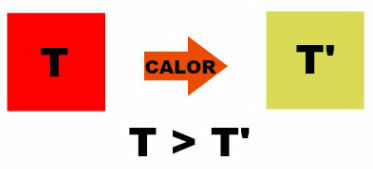You natural numbers are divided in many ways into others numeric subsets. The most common are: even numbers, odd numbers, Prime numbers and composite numbers. Compound numbers are those that result from multiplying prime numbers. To discuss in greater depth what is a composite number, it is necessary to know the set of prime numbers well.
Prime numbers
To be considered prime, a number must be divisible only by itself or by 1. In this way, prime numbers constitute an infinite subset of natural numbers whose first elements are:
2, 3, 5, 7, 11, 13, 17, 19, 23, 29, 31, …
Note that the only even number that is prime is 2. This is because any other even number is divisible by 2 and is therefore not prime.
Also note that the number 1, although it is divisible only by itself and by 1, is not a prime number. This happens because of the fundamental theorem of arithmetic, set out below.
fundamental theorem of arithmetic
This theorem is the mathematical rule that guarantees that every number can be written as a product of prime numbers. Watch:
“Every natural number greater than 1 is either prime or can be written as a product of prime numbers.”
Do not stop now... There's more after the advertising ;)
composite numbers
Compound numbers are exactly those numbers that can be written as products of prime numbers. Examples of composite numbers are:
4 = 2·2 = 22
6 = 2·3
8 = 2·2·2 = 23
9 = 3·3 = 32
…
Note that the factors are prime numbers. When they are not, they can be decomposed again, originating prime factors. Watch:
40 = 2·20 = 2·2·10 = 2·2·2·5 = 23·5
The procedure performed to turn 40 into 23·5 is called prime factor decomposition.
Practical method for decomposition
The decomposition into prime factors can follow the recipe of the method used to calculate the MMC, however, for a single number. At the end, instead of multiplying the results, group the equal prime factors together. Note the example of the decomposition of the number 15360:
15360| 2
7680| 2
3840| 2
1920| 2
960| 2
480| 2
240| 2
120| 2
60| 2
30| 2
15| 3
5| 5
1| 210·3·5
For those who cannot identify whether the 15360 is divisible by 2 or by 3, just check the divisibility criteria.
By Luiz Paulo Moreira
Graduated in Mathematics
Would you like to reference this text in a school or academic work? Look:
SILVA, Luiz Paulo Moreira. "What is a composite number?"; Brazil School. Available in: https://brasilescola.uol.com.br/o-que-e/matematica/o-que-e-numero-composto.htm. Accessed on June 27, 2021.


